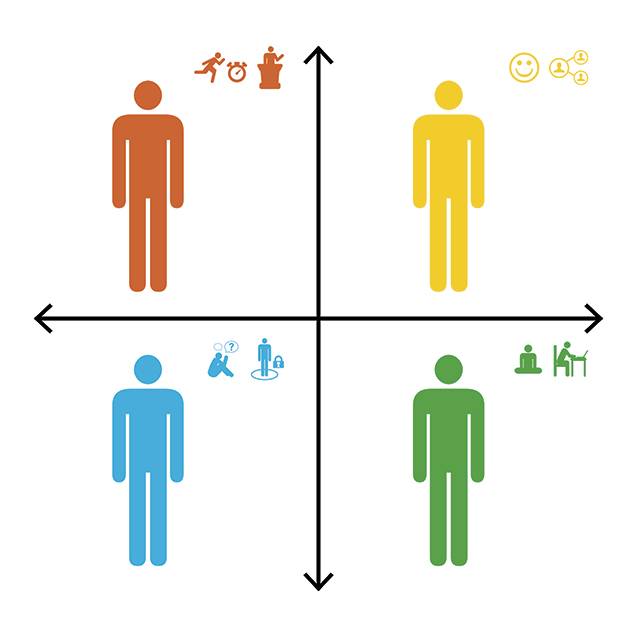Here’s a more in-depth look at each of the four classical temperaments and how they are described in both historical and modern contexts:
1. Sanguine (The Enthusiast)
Key Traits: Social, outgoing, lively, talkative, enthusiastic, and optimistic.
Historical Perspective
In ancient Greek thought, the sanguine temperament was associated with the dominance of blood as a bodily fluid. People with this temperament were considered to be cheerful, full of life, and driven by their emotions. They were seen as creative, expressive, and quick to react to their surroundings.
Modern Interpretation
Personality: Sanguine individuals are the life of the party, often very sociable and eager to connect with others. They tend to form friendships easily, enjoy engaging in conversations, and have a strong sense of curiosity. However, they may also be impulsive and struggle with long-term focus or commitment.
Strengths: Their high energy makes them natural leaders, especially in social situations. They are adaptable, creative, and able to inspire others.
Challenges: They may have difficulty sticking to tasks that require focus and discipline, and their optimism can lead them to overlook practical concerns.
2. Choleric (The Leader)
Key Traits: Ambitious, energetic, goal-oriented, assertive, and passionate.
Historical Perspective
The choleric temperament was linked to an excess of yellow bile. People with this temperament were thought to be quick-tempered, task-driven, and leaders by nature. They were seen as naturally strong-willed, dominant, and decisive but could also be prone to anger and impatience.
Modern Interpretation
Personality: Choleric individuals are assertive, confident, and often take charge in situations. They thrive on challenges and are driven by their goals. Their strong sense of direction and purpose helps them excel in leadership roles.
Strengths: Their determination and ability to make quick decisions are key to their success in leadership and problem-solving roles. They are often good at motivating others and pushing toward ambitious goals.
Challenges: Choleric people can be seen as domineering or overly aggressive. Their need for control can lead to impatience or frustration, especially when others don’t meet their expectations.
3. Melancholic (The Thinker)
Key Traits: Thoughtful, introspective, analytical, cautious, sensitive.
Historical Perspective
The melancholic temperament was linked to black bile and was associated with a more serious, introverted, and often reflective nature. People with this temperament were believed to be prone to deep thought, sadness, and pessimism but were also seen as deeply creative and insightful.
Modern Interpretation
Personality: Melancholic individuals are often perfectionists and take time to carefully think through situations before making decisions. They tend to be introspective, valuing logic, detail, and deep emotional experiences. They are often very self-disciplined and prefer routine and structure.
Strengths: They are great planners, often excelling in research, analysis, and tasks requiring attention to detail. Their loyalty and dedication to people and causes make them reliable and trustworthy.
Challenges: Their tendency toward overthinking and emotional sensitivity can lead to worry or depression. They may also struggle with letting go of past grievances or mistakes.
4. Phlegmatic (The Peacemaker)
Key Traits: Calm, peaceful, reliable, patient, diplomatic.
Historical Perspective
Phlegmatic individuals were thought to have an abundance of phlegm, which made them calm, relaxed, and slow to anger. They were seen as steady and reliable but sometimes indifferent or uninspired.
Modern Interpretation
Personality: Phlegmatic individuals are typically introverted and prefer peaceful, harmonious environments. They are patient, kind, and good at resolving conflicts through diplomacy. They don’t easily get upset and are known for their even-tempered nature.
Strengths: Phlegmatics are great team players and are often the glue that holds groups together. Their calm and patient nature helps them handle stress well. They are excellent listeners, dependable, and loyal.
Challenges: Because they avoid confrontation and conflict, they may sometimes lack assertiveness. Their preference for peace can lead to indecision or a reluctance to take action when necessary.


